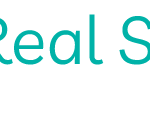Table of Contents
The Term “DE schooling” Two Meanings.
DE schooling on the one hand, this does not refer to school-like educational methods, which primarily indicate a lack of dependence on textbooks or desks. Instead, in the sense of homeschooling advocate John Holt, who coined the term, DE schooling refers to a type of interest-based parenting. The parents are not instrumental in directing the child’s upbringing but instead help them explore their interests. The lack of schooling does not mean that the child is not getting an education, but that they are not “schooled” or brought up in a rigid way like school.
Holt explained that children learn through life experiences and encouraged parents to live their lives with their children. DE schooling, also known as interest-directed or child-directed learning, is about finding opportunities when they arise in real life, through which a child can learn without coercion. Holt explained that there is no specific knowledge that a child should require. An out-of-school child may use texts or instructional material, but these are not considered essential to education.
DE schoolers Believe Children learn Best by Doing
a child can learn to read to develop an interest in history or other cultures. Or math skills by running a small business or sharing family finances. For example, they can learn animal husbandry by raising dairy goats or meat rabbits, botany by tending a vegetable garden. Chemistry to understand how firearms or the internal combustion engine work. Or local politics and history by following a zoning or historical status dispute. Although any home teacher use the methods as well. Outside of school, the child is the one who initiates the learning activities.
DE schooling should not confuse with DE schooling, which indicate a philosophy against “institutional schools” or a period or form of deprogramming children or parents who have previously enroll in school.
Home Education
DE schooling is generally careful to a form of homeschooling, simply raising children at home rather than in school. Homeschooling is consider synonymous with homeschooling. But some have argued that the latter term implies the reestablishment of school in the context of the home. Which they say is philosophically at odds with DE schooling.
DE schooling differs from other forms of homeschooling in that a teacher and curriculum do not guide the student’s education.
Although students may choose to engage teachers or curriculum outside of school, they ultimately control their education. Students decide how, when, why and what to track. Parents who DE school their children act as “enablers” by providing a wide range of resources, helping their children access, navigate, and understand the world, and helping them make goals and plans for both the distant future as well as for the future and to implement the end. . immediate unschooling expands children’s natural curiosity as an extension of their interests, concerns, needs


